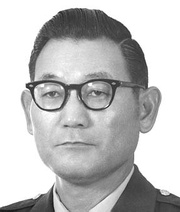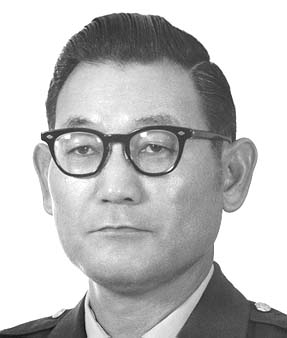
Japanese American Military Experience Database

Ted Kiyoshi Soyeshima
MISLS Sec 14 (Graduated Savage, Dec. 1942)
Allied Translator Interpreter Service (ATIS), Australia;
164th Military Police, Prisoner of War Processing Company, Philippines
Second tour:
500th MIG, FEC, Tokyo, Japan
Army Intelligence School, Fort Holabird, MD
US Army Intelligence Service Center, Seoul, Korea
HQ, 111th Military Intelligence Corps, Atlanta, GA
G2 Section, HQ I Corp Group, Korea
704th MI Detachment, 500th MIG, Camp Zama, Japan
Separated from service 5/1/1972, at Fort MacArthur, CA
Interpreter/Interrogator
USA: Camp Savage, MN; Camp Shelby, MS
Other countries: Australia; Philippines
Second tour:
USA:Fort Holabird, MD; Atlanta, GA
Other countries:Tokyo, Japan; Seoul, Korea; Camp Zama, Japan
Translation of documents, interrogation and processing of prisoners of war.
Second tour:
Collection of military intelligence, translation of documents, and liaison with military and civilian security elements of Japanese and Korean governments. Also, training military personnel in the intelligence procedures, language, and mores and customs of the local population.
Interpreting, interrogating and processing of Japanese military and civilian prisoners of war.
Second tour:
Supervise the intelligence collection requirements of the military units and train new arrivals in the theater of operation. Also, supervise the collection, collation, and evaluation of information and to maintain liaison with military and civilian security officials of the host countries.
Luzon, Philippines Campaign and South Philippines Campaign
Second tour:
Korea
Good Conduct Medal
Philippines Liberation Ribbon
Asiatic-Pacific Theater Ribbon w/2 Bronze Stars
World War II Distinguished Unit Badge w/2 Oak Leaf Clusters
Victory Medal
Second tour:
Legion of Merit
Meritorious Unit Emblem
Armed Forces Expeditionary Medal
National Defense Medal w/Oak Leaf Cluster
Armed Forces Reserve Medal
Philippines Independence Ribbon
Commendation Ribbon w/Metal Pendant
United Nations Service Medal
Korea Service Medal
In Australia, while awaiting reassignment at a staging area, one day a burly Australian gate guard asked me why I was the only 'Yank' who spoke the 'King's English'. The question dumbfounded me until I realized that the other troops awaiting reassignment with me were all white southerners.
While I was with the 164th MP, PWP Co, and processing prisoners of war, many of the Japanese prisoners who were captured before VJ Day (Aug 14, 1945) anxiously asked if they would be segregated from those prisoners who surrender after the Imperial proclamation. I assured them they would all be treated equally. I was very impressed with the indoctrination they must have received to fear the dishonor of being captured. Since we utilized English speaking prisoners to assist us in processing the many military and civilian prisoners, I became friends with a few, even eating some meals with them since they had rice at mealtime.
Second tour:
Arriving in Japan for the first time in December 1945, it was heartbreaking to see the complete destruction of the industrial complex between Tokyo and Yokohama. The poverty of the populace was unbelievable, with many homeless people sleeping on the streets and in train stations.
In Tokyo, I became reaquainted with my former Japanese school teacher of Pomona, CA Nihon Gakuen. He taught us on Sundays while he was attending school in Pasadena. When I met him, he had been repatriated from China and found employment at Nihon University in Tokyo. It is interesting to note that his schoolmate, while attending school in Pasadena, was none other than Takeo Miki, who later became prime minister of Japan.
As for the war crimes trial in the Philippines, victory is hollow without compassion and justice for the vanquished. The foregoing is my personal opinion based upon the book 'The Case of General Yamashita' by A. Frank Reel, Yamashita's defense lawyer.
In future wars, the thought of using atomic bombs is unbelievable. The devastation and suffering of the civilian population of Hiroshima and Nagasaki were horrifying sights. We must learn to live together and a strong United Nations appears to be the only salvation.
In December 1945, I was discharged in the Philippines and accepted a civil service position in Japan at ATIS, GHQ, FEC, redesignated later as the 500th Military Intelligence Group (500th MIG).
As training instructor, I supervised Japanese language instructors and made presentations of military and technical language training, mores and customs to military language graduates arriving from the US for assignment in the Far East.
In June 1950, I applied for a reserve commission and volunteered for active military service and a second tour.


